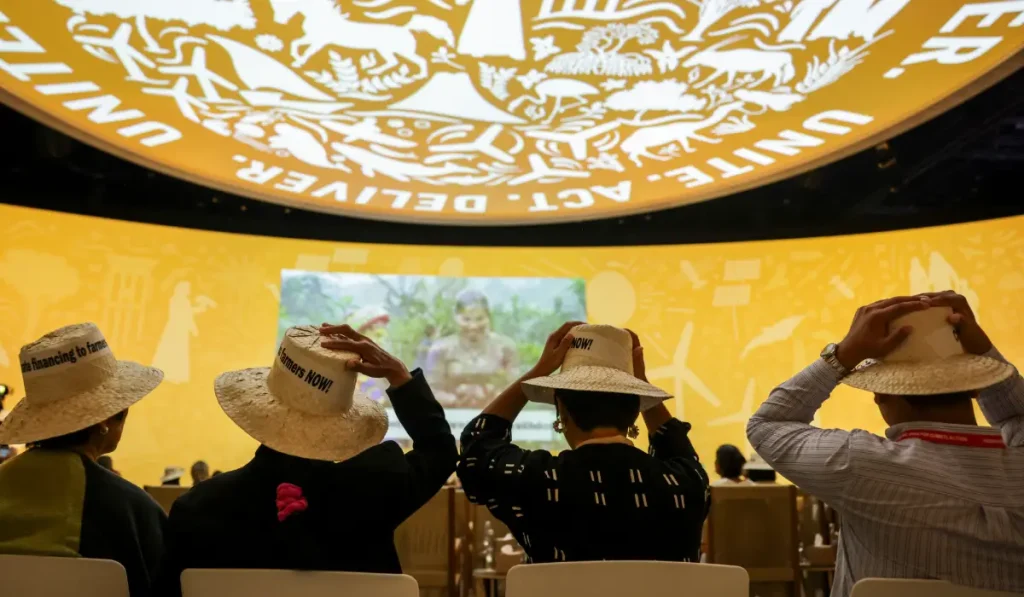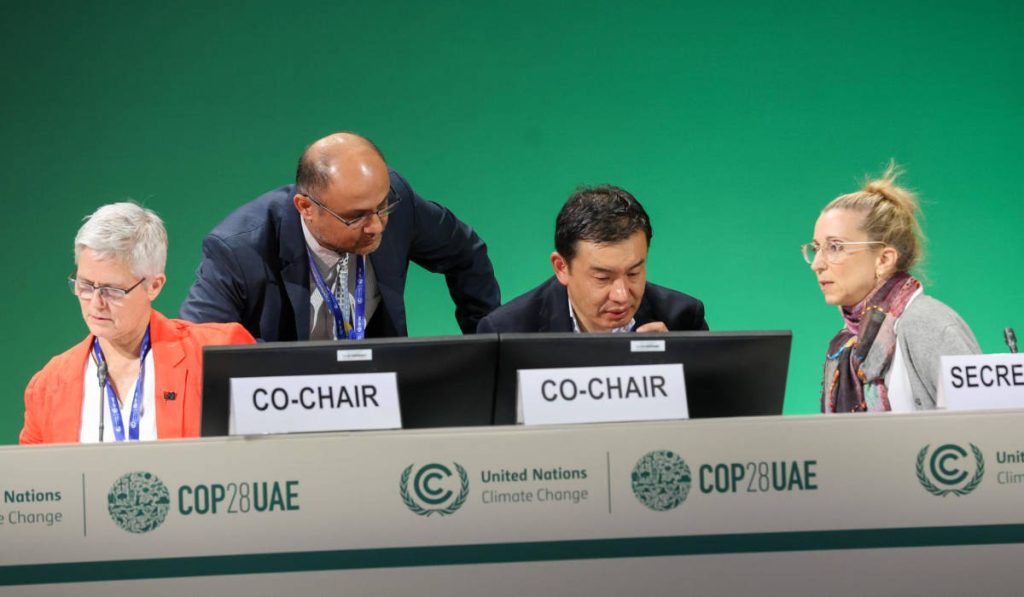It has been a difficult week for COP28 President Sultan Al Jaber. He was accused of leveraging the COP to support fossil fuel deals with 15 countries. Yesterday, he strongly refuted the allegation, arguing that they were merely talking points prepared for him that he had neither seen nor used. He also invited controversy in his COP28 opening speech by suggesting that negotiators “must look for ways and ensure the inclusion of the role of fossil fuels.” That notwithstanding, he also got the COP off to a remarkable start with two important developments.
The first was to get countries to agree to operationalize the Loss and Damage Fund on the first day of the COP. A decision to develop the Fund was made last year at COP27, and discussions on its design have been underway this year within a dedicated Transitional Committee. It looked like all was lost last month when committee members were unable to agree on some of the key elements, but with some monumental efforts by the co-facilitators, a hard push by Al Jaber, and some difficult concessions by developing countries, a series of recommendations was agreed to. It is these recommendations that were adopted at the first day of the COP, meaning that the Fund can now become operational. As discussed in our earlier analysis, some of the key elements of the new Fund are that it will be hosted by the World Bank for a transitional 4 year period, and there is no obligation for developed countries to finance it. That notwithstanding, one of the most important issues, its capitalization, got off to a good start. After the announcement, the UAE committed $100 million to the Fund, with Germany also committing the same amount. The United Kingdom committed approximately £40million to the Fund, and Japan contributed $10million. Most surprising is the United States who had objected to the language of the recommendations for the Fund’s design in the final hours of the last Transitional Committee meeting and who was expected to push back on any agreement to operationalise it. In a last minute turnaround, the US committed $17.5million to the Fund.
Another triumph for the COP28 Presidency was to have the COP Agenda agreed to on the first day. Ordinarily this wouldn’t be an issue, however COP27 last year got off to a delayed start due to a tussle over the agenda and in at the climate talks in Bonn in June this year the agenda was only agreed to a day before the formal negotiations ended. For this COP, there were multiple proposals for new dedicated agenda items, including urgently scaling finance to developing countries, doubling adaptation finance, mountains, as well as positive incentives for accelerating early action. One of the deeply contentious proposed items was a request to have a dedicated discussion on what it means to give effect to the principles of equity and common but differentiated responsibilities when implementing the Paris Agreement. Developing countries also wanted an agenda item to address concerns with unilateral trade measures (like the EU’s Carbon Border Adjustment Mechanism (CBAM)) and their impact on just transitions and efforts to eliminate poverty.
Ultimately Al Jaber was able to persuade countries that most of these could be addressed within existing work streams, adding that he would convene consultations on the special needs and circumstances of Africa, with an outcome to be reported back to the parties that govern the Paris Agreement, known as the CMA. African countries have long argued for a COP decision that recognises the special needs and circumstances of the continent.
Having gotten off to a good start, negotiations commenced with opening statements. Key negotiation blocs like the BASIC (Brazil, South Africa, India and China) Group emphasised the importance of addressing trade, while the Arab Group emphasised the importance of carbon markets (Article 6) and the global goal on adaptation. Senegal for the group of Least Developed Countries, urged for clear guidance from the global stocktake on how countries can bolster their NDCs, as well as the need for developed countries to support renewable energy and just transitions. The African Group of Negotiators (AGN) highlighted the widening finance gap, and the importance of adaptation finance and the provision of finance that is commensurate with actual losses and damages experienced in developing countries. Lastly, the G77 plus China, called for high pledges for the loss and damage fund, increased adaptation finance and for the social, equity, and economic aspects of Just Transitions to be recognised.






